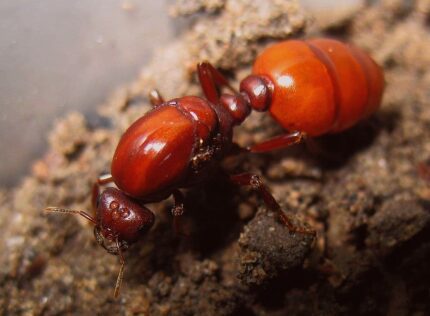
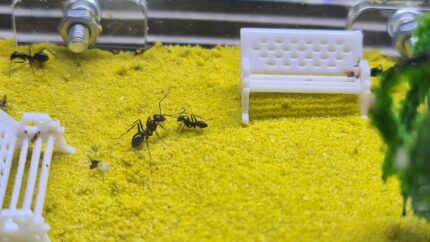
Carebara diversa
$76.87 – $356.86Price range: $76.87 through $356.86
Worldwide shipping
Free delivery over 999 PLN
The highest quality of goods
Live delivery guarantee
24/7 Personal Support
Fair Prices
Description
Carebara diversa is a polygynous ant species with colony sizes of up to 500,000 workers with one Queen. They have a medium development rate and vary in size, with queens measuring 18-24 mm, workers measuring 2-5mm, and majors measuring 4-20 mm. These ants are reddish brown to black in color and require a diet of food insects, syrup, fruits, vegetables, jelly, and cooked chicken.
Additional information
| Behavior | |
|---|---|
| Difficulty in breeding | |
| Origin | |
| The size of ants | |
| Wintering |
Carebara diversa
Colony Type: Polygyny
Colony Size: over 1 million
Development Speed: Ultra Fast
Size
- Queen: 18-24 mm
- Workers: 2-4mm
- Majors: 5-21 mm
These ants display a striking coloration, varying from reddish brown to black, adding to their visual appeal.
Nutrition
- Food insects (such as cockroaches and crickets) dead, or live if colony is big
- Syrup (a mixture of water and honey or sugar, with a ratio of 4/3 water:1)
- Fruits and vegetables
- Jelly
- Cooked chicken without salt, shrimps
- Honey
- Seeds (as additional food)
Don’t forget to check out our food products to ensure a well-balanced diet for your colony!
Humidity and Temperature
- Humidity: Arena: 60-80%, Nest: 70-90%
- Temperature: Arena: 25-35 °C, Nest: 26-29 °C
Creating the ideal environment for your Carebara diversa colony is crucial for their overall health and productivity. Monitoring and regulating these factors will promote the optimal growth and development of your ant colony.
Special Features
Carebara diversa is best known for the significant size difference between their small and large workers. These ants exhibit a fascinating polymorphism, where the majors stand out with their larger bodies and heads. Another notable characteristic of Carebara diversa is their aggressiveness. These ants are territorial and will fiercely defend their nest, attacking anything that poses a threat. This aggression makes them excellent foragers and defenders.
Recommended Nests for breeding
- Acrylic nests
- Ytong nests
- Gypsum


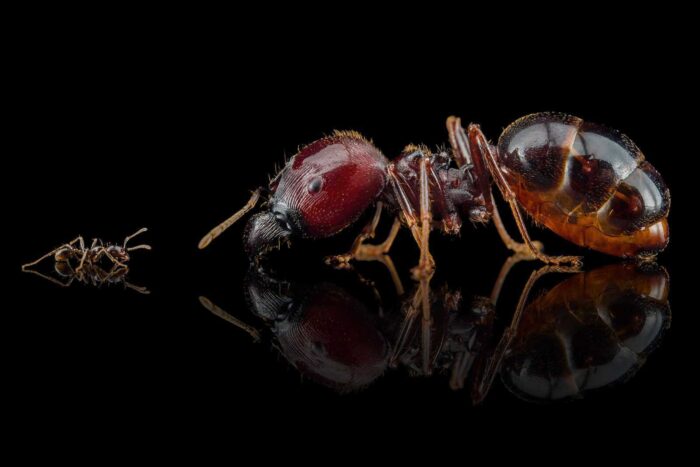
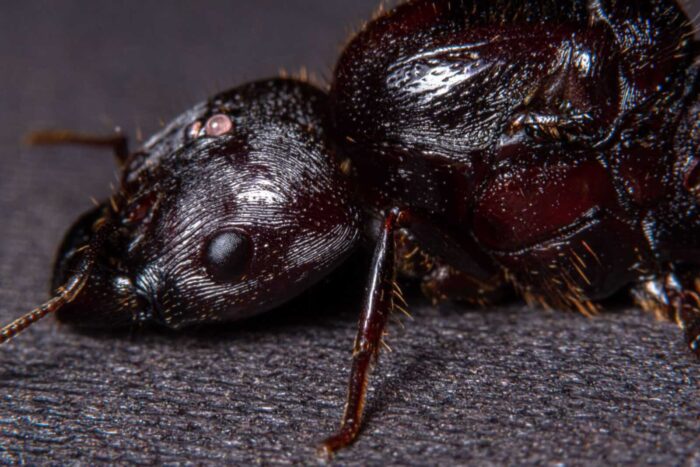
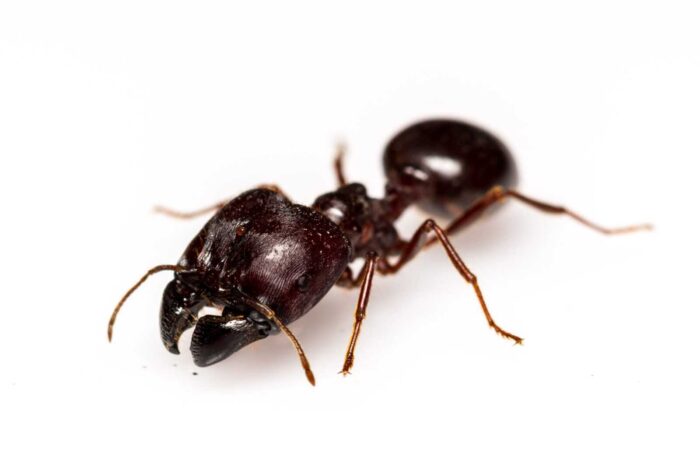
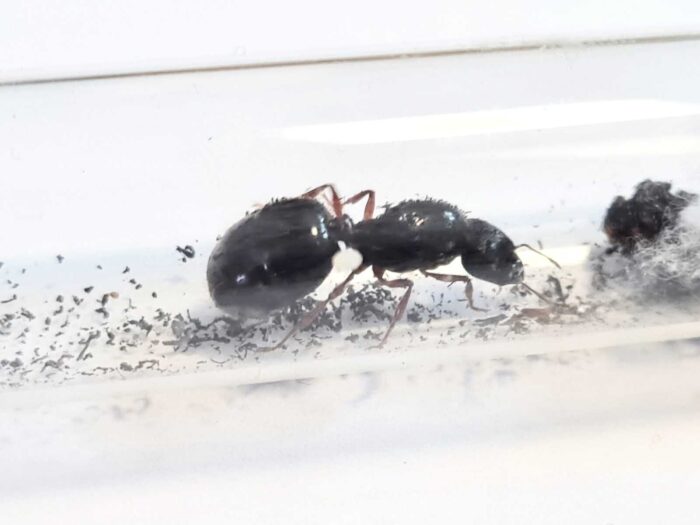
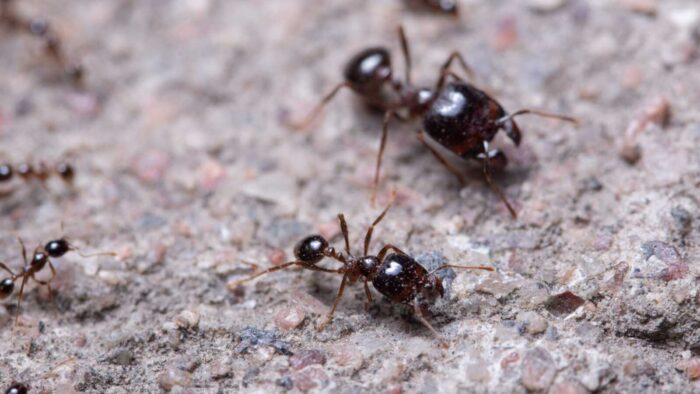
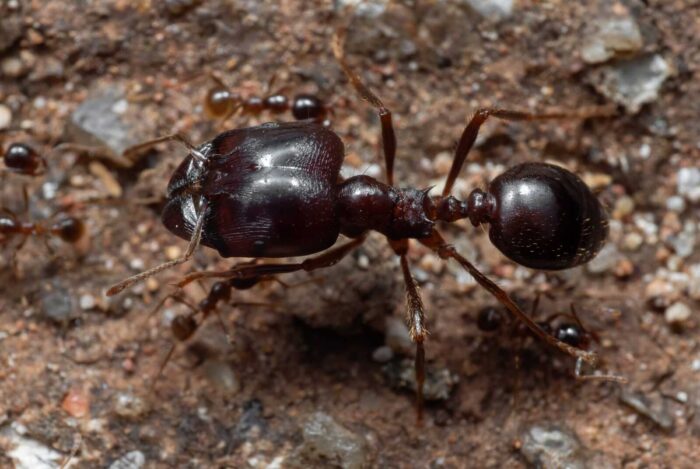
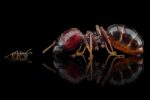
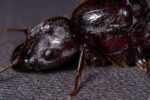
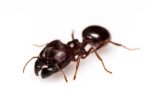
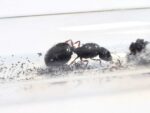

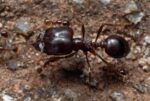
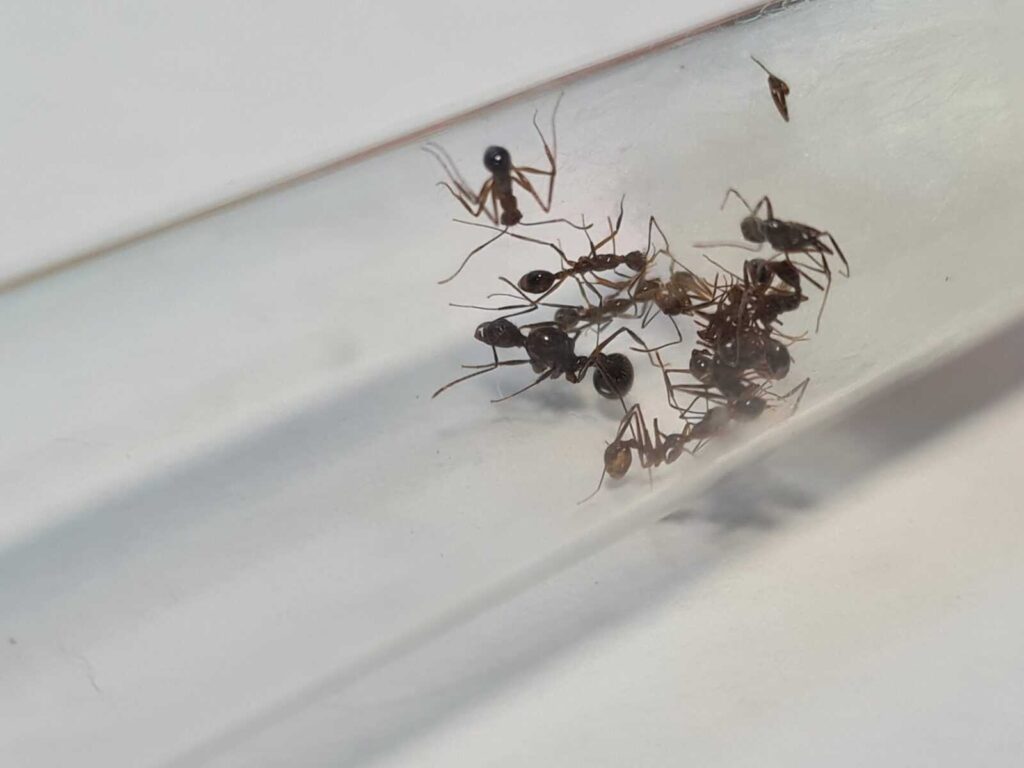
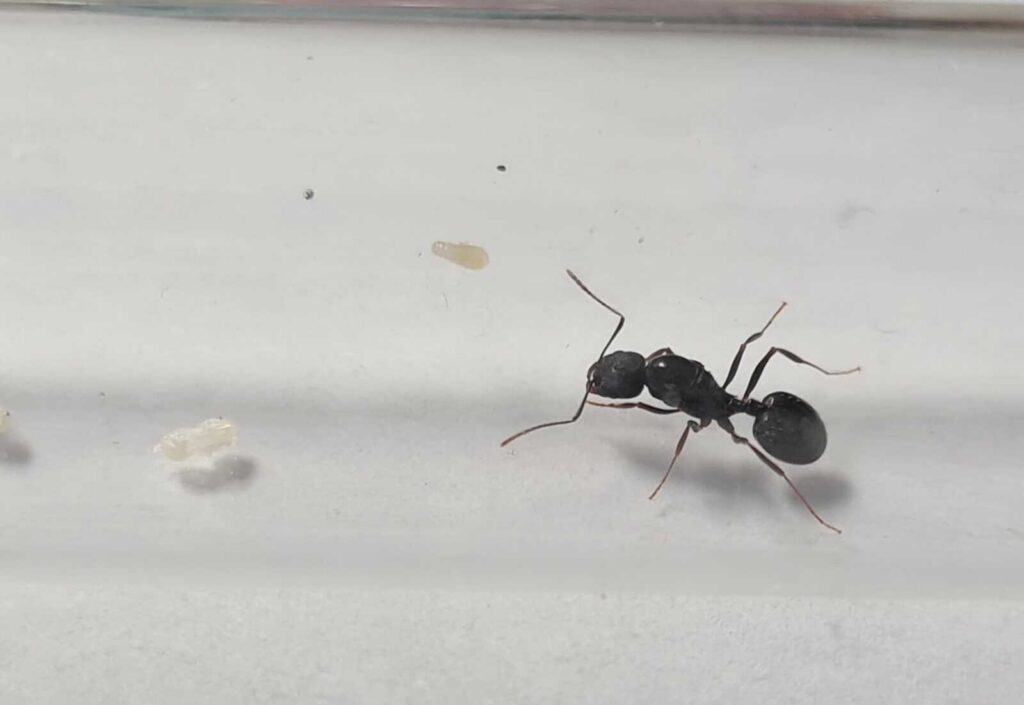
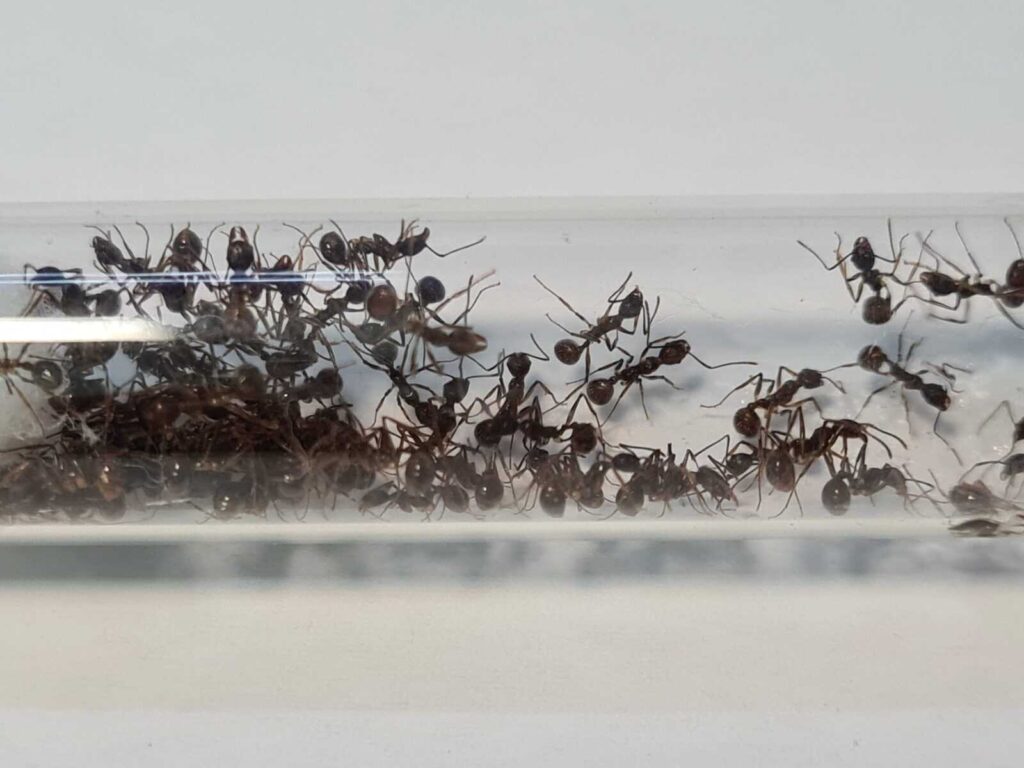
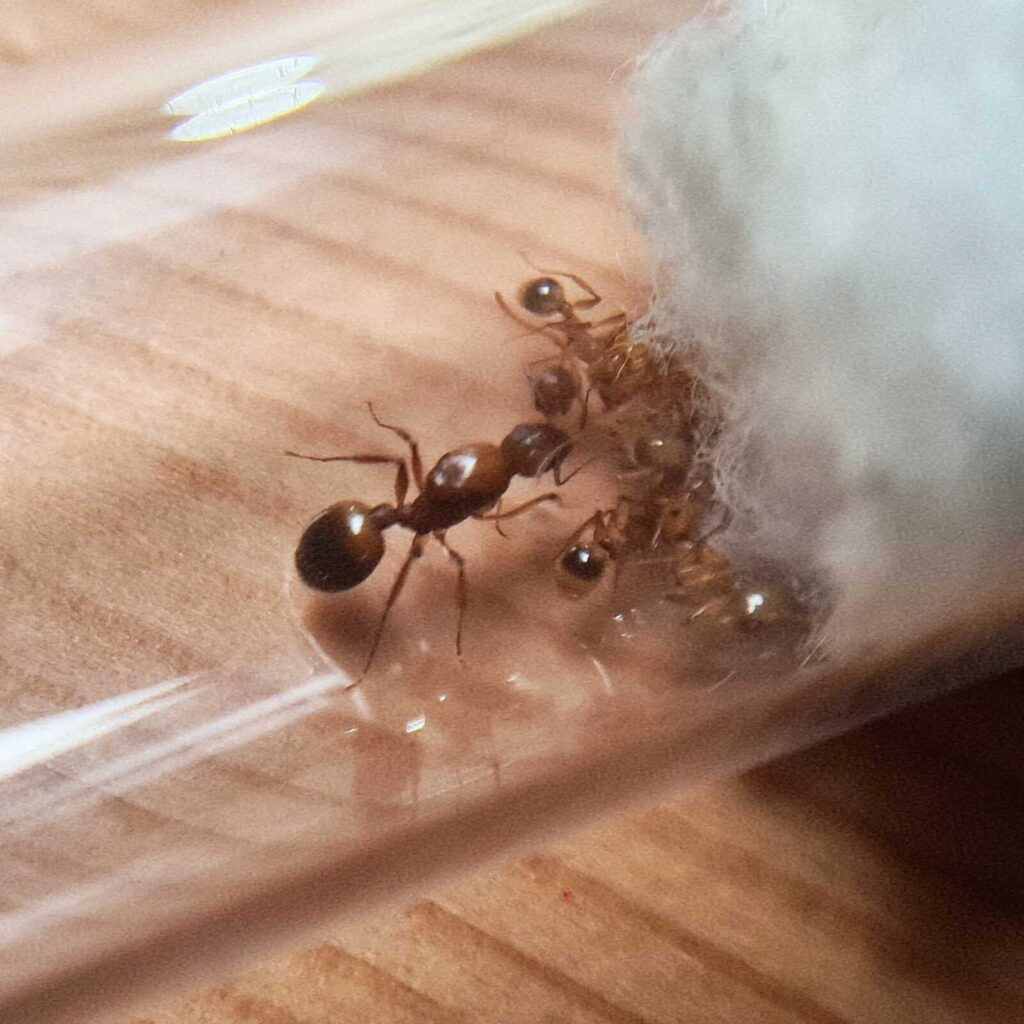
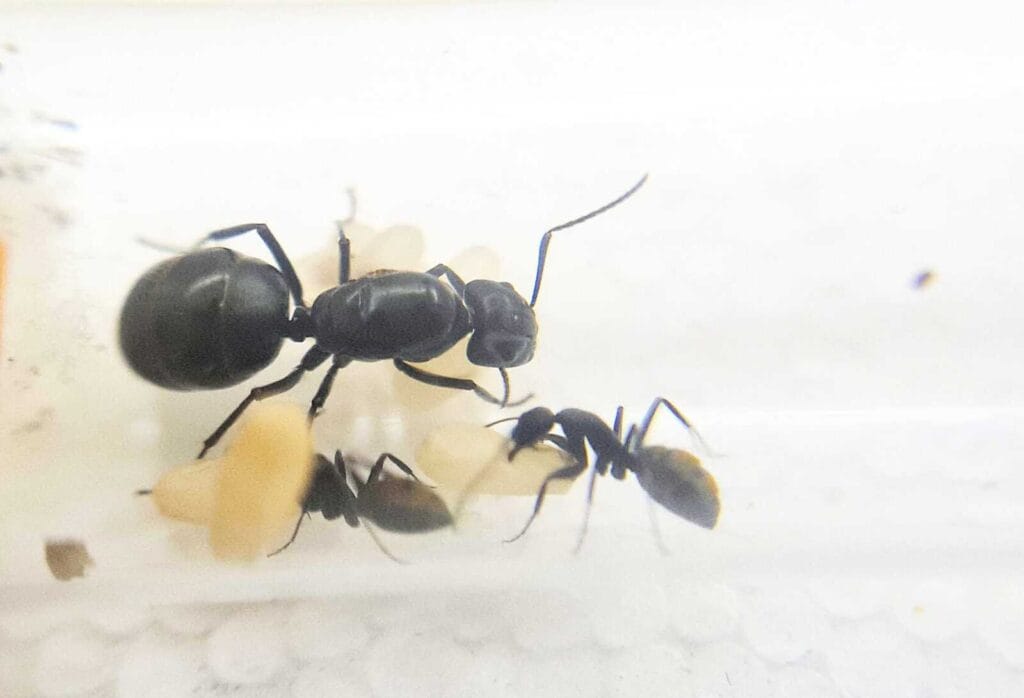
Sim City –
My dream come true